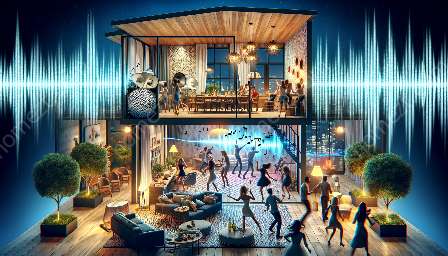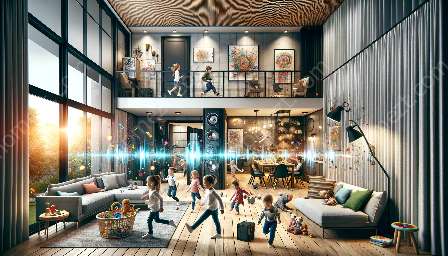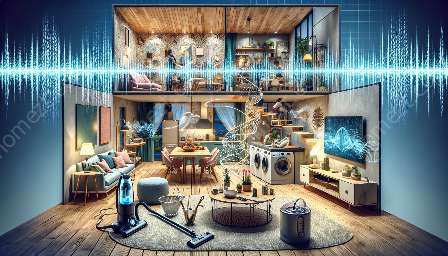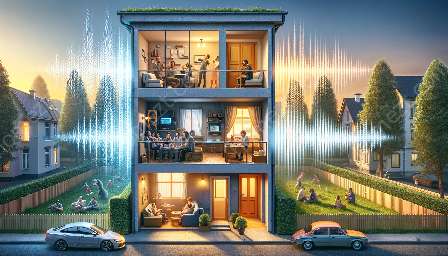Noise pollution from external sources can have a significant impact on our home environment, leading to a range of issues that affect our health and well-being. In this comprehensive guide, we'll explore the various external noise sources that can disrupt the tranquility of our homes, investigate the causes of noise pollution in homes, and delve into effective noise control measures to create a peaceful living space.
External Noise Sources and Their Impact
When we think of our homes, we often envision a peaceful sanctuary where we can relax and unwind. However, external noise sources can disrupt this tranquility, leading to various negative effects on our physical and mental well-being. Common external noise sources impacting home environments include:
- Traffic Noise: The sound of vehicles, honking, and engines can permeate into homes located near busy roads, causing constant disturbance.
- Construction and Industrial Noise: Nearby construction sites, industrial facilities, or commercial activities can generate high levels of noise, disrupting the quietness of residential areas.
- Air Traffic: Homes near airports or flight paths may experience significant airplane noise, which can be especially disruptive during takeoff and landing.
- Neighborhood Activities: Loud neighbors, barking dogs, or outdoor recreational activities in the neighborhood can contribute to noise pollution within residential areas.
- Natural Elements: Environmental factors such as wind, rain, and wildlife can also create noise that affects the home environment.
These external noise sources can lead to a range of issues within homes, including sleep disturbances, increased stress levels, decreased productivity, and impaired concentration. It's crucial to understand the causes of noise pollution in homes in order to effectively address these challenges.
Causes of Noise Pollution in Homes
The causes of noise pollution in homes are multifaceted and can stem from various factors, including:
- Urbanization: As urban areas continue to expand, residential neighborhoods are increasingly exposed to high levels of traffic, construction, and commercial activities, leading to elevated noise levels.
- Infrastructure Development: The construction of new roads, highways, and transportation systems in close proximity to residential areas can introduce persistent noise pollution.
- Population Density: High population density in urban areas can result in crowded neighborhoods where noise from neighboring homes, businesses, and public spaces can easily penetrate residential properties.
- Technological Advancements: The use of loud machinery and equipment in industrial and commercial settings, as well as the prevalence of personal electronic devices, can contribute to increased noise pollution in homes.
- Environmental Factors: Natural elements such as wind, precipitation, and wildlife can also affect the acoustic environment of residential areas.
Understanding these underlying causes is essential in devising effective strategies to mitigate and control noise pollution within homes.
Noise Control in Homes
Implementing noise control measures is crucial in creating a peaceful and quiet living environment. Effective noise control strategies include:
- Soundproofing: Installing sound-absorbing materials, such as acoustic panels, insulation, and double-glazed windows, can significantly reduce the transmission of external noise into homes.
- Strategic Landscaping: Planting trees, bushes, and shrubs around the perimeter of the property can act as natural barriers to block and absorb external noise.
- Noise Barriers and Fences: Constructing noise barriers or installing high-quality fencing can help segregate the home from external noise sources.
- Home Modifications: Making structural modifications, such as sealing gaps, installing solid doors, and using soundproof curtains, can enhance the overall sound insulation of homes.
- Behavioral Changes: Encouraging considerate behavior among neighbors and adopting quiet practices within the household can contribute to a more peaceful residential environment.
By implementing these noise control measures, homeowners can create a serene and comfortable living space that is shielded from external disturbances, promoting better sleep, improved concentration, and enhanced well-being.
Conclusion
External noise sources have a significant impact on the home environment, but by understanding the causes of noise pollution in homes and implementing effective noise control measures, homeowners can create a tranquil and peaceful living space. By addressing the challenges posed by external noise sources, individuals can cultivate a home environment that promotes relaxation, productivity, and overall well-being.



























